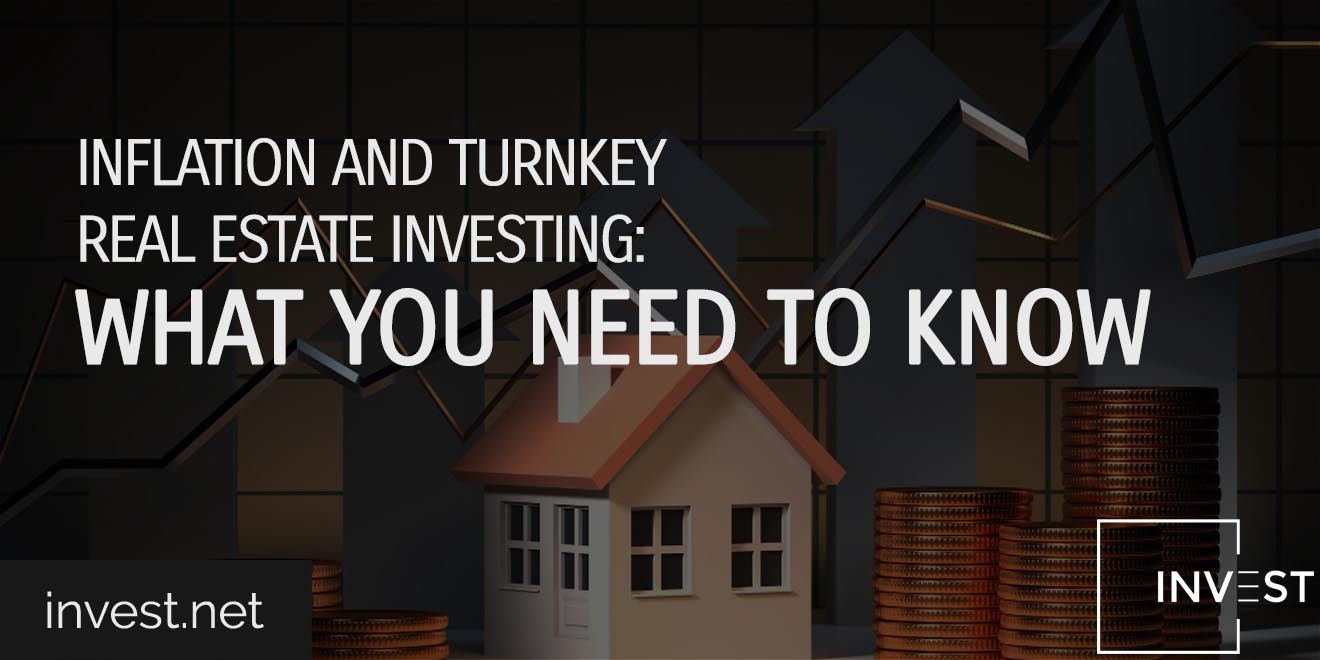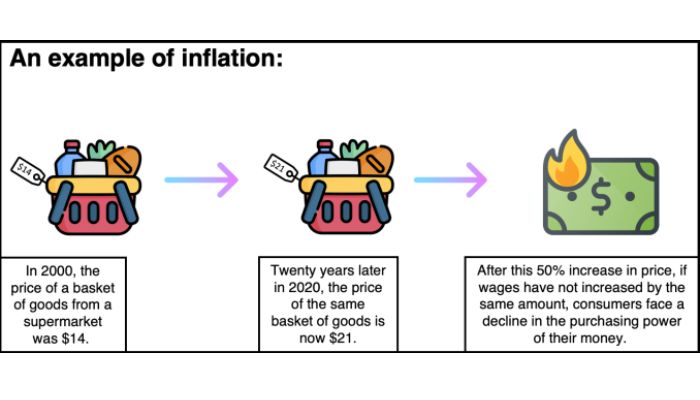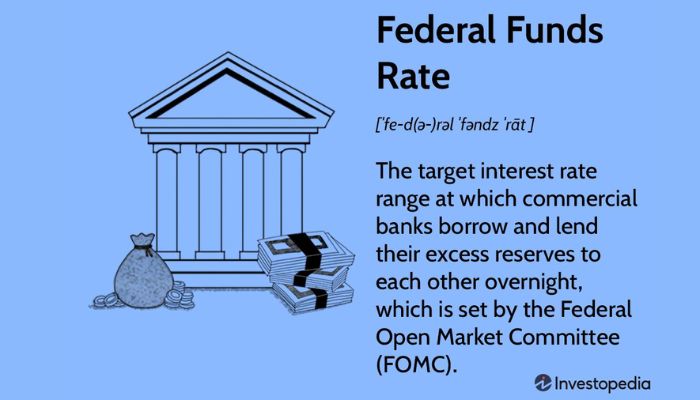


Some people think of real estate investments as a kind of gambling.
But it's more like a science.
Scientists must track dozens, and sometimes hundreds of different variables to properly understand a system and predict patterns within it. And just as scientists predict the movement of celestial bodies by performing calculations like planetary mass and gravitational pulls, real estate investors must predict the movement of a market by incorporating variables like neighborhood dynamics, historical performance, and broad economic factors.
One such factor is inflation, an often discussed but popularly misunderstood aspect of our economy.
Properly understanding and making decisions around inflation can turn you into a better turnkey real estate investor.
So what do you need to know?

The U.S. Department of Labor defines inflation--typically using the consumer price index (CPI)--as “the overall general upward price movement of goods and services in an economy,” though this definition is slightly contentious – and some individuals and organizations use the term slightly differently.
For the purposes of this article, inflation is across-the-board upward price momentum within an economy, largely driven by the devaluation of money within that economy.
As we’ll see, that component – the devaluation of currency – is a critical one to understand as a turnkey real estate investor.
Conceptually, this should be easy to understand. If you pay for things in gold coins, and the price of a gold coin decreases, you'll need to spend more gold coins to purchase the same goods and services. In this way, you can think of inflation as a decline in the price of money.
How this happens is somewhat complex, as our complicated economic and monetary policies have constructed a system that is not easily reducible. However, one of the most common instigating factors for inflation is an increase in the circulating supply of money; just as the law of supply and demand dictates, an overabundance of supply of a given good will reduce the price of that good.
Imagine, in our previous example, that everyone had their number of gold coins double overnight; wouldn't this decrease the purchasing power of each individual coin? This is also easy to understand in the world of collectibles, where rarity often dictates price; if a rare trading card is reprinted, it becomes more accessible, so people are willing to spend less on any individual copy.
How does the circulating supply of money increase? There are a few mechanisms that allow this to happen. One of the most important to recognize is a reduction of the Federal Reserve’s interest rates, which allow banks to borrow money more freely; some increases in government spending can also increase inflation.
Keep in mind that the United States experiences nearly constant background inflation; in fact, mainstream economists insist that some inflation is good for the economy because it encourages spending and real estate investment.
Now to the central question.
How does this economic phenomenon affect your return key real estate investing?
There are a few key areas to consider.
First, you need to think about how rising interest rates impact property prices.
The inflationary pattern in the United States goes something like this: the Fed slashes interest rates, which produces an economic stimulus that pushes prices higher. Once decision makers realize inflation has spiked, they increase interest rates to curtail inflation, which slows down the momentum of inflation and sometimes leads to economic stagnation, when the cycle begins again.
The effective federal funds rate (EFFR) is one of the most important metrics to study here, as it dictates the effective interest rates at which banks can borrow from the Fed. Because this rate is critical for banks to borrow and re-lend money, it also tends to determine interest rates of bank loans, like mortgages.

Already, you can see where this is going. When interest rates are low, people rush to the housing market to take advantage of low mortgage rates, which pushes prices higher. This can be advantageous for real estate investors, especially if you can strike early, because you'll get to take advantage of a low interest rate before rising prices further skyrocket.
In other words, it's arguable that the best price to strike is right before a spike in inflation.
Once inflation sets in, prices increase, which may or may not be valuable to you, depending on how much property you currently hold and whether you're interested in buying a new one.
It's also possible to try and take advantage of these dynamics by selling a property at peak price; however, this is typically difficult, as consumers are less incentivized to buy more expensive properties, especially when interest rates are higher. Additionally, it’s hard to tell when the “peak” will hit.
One interesting effect of inflation is that it benefits holders of good debt.
Remember, inflation represents a functional decrease in the hypothetical “price” or value of money. This means that the power of your savings decreases, but it also means that the intrinsic value of your debt decreases. The nominal amount won't change, but relatively speaking, you'll pay less to pay off that nominal value when the intrinsic value of the currency decreases.
On top of that, debt is usually cheap immediately before a rise in inflation. Low interest rates often cause inflation to rise, meaning you'll get to take advantage of a low interest rate as well as declining debt valuation.
In short, good debt is beneficial in an inflationary environment. If you anticipate inflation rising in the near future, consider adding a tolerable amount of debt to your portfolio.
One of the greatest advantages of real estate investing is that it gives you the opportunity to take advantage of financial leverage, essentially investing with borrowed money. As long as you don't over-leverage yourself, you can take advantage of rising inflation to put yourself in a much better financial position overall.
You'll also need to consider market dynamics and rent prices that change as a result of inflation. Inflation increases the costs of practically everything (thereby decreasing even profitable rental income) within the market, so inflation could mean that your maintenance, repair, and other expenses will increase as well.
Keep this in mind as you're shopping for new turnkey real estate properties as one of many asset classes to add to your portfolio.
Inflation is also a justification for increasing rent prices. However, wages tend to increase at rates slower than prices and the rest of the economy, so be strategic about raising rent if you don't want to lose your tenants.
Finally, keep in mind that most other real estate investors are acutely aware of dynamics related to inflation, interest rates, and economic pressure; ideal buying conditions will likely attract a lot of buyers, increasing competition and prices simultaneously.
For this reason, the hypothetically “perfect” time isn’t necessarily the most practical “perfect” time to buy.
Unfortunately, inflation and economics are too complex to reduce to simplistic pieces of advice that can be applied universally. However, there are some inflation-related tools in your toolbox that can help you become a better turnkey real estate investor.
Always look at the following to better anticipate the flow of inflation in the near future:
Here are some final thoughts, strategies, and considerations to guide you as you incorporate inflation into your turnkey real estate investing strategy:
Investing is tough, even if you’re primarily considering turnkey properties that don’t require much upfront effort. That’s why we built a team of experienced real estateinvestors and consultants – so that we could help people like you build and preserve their wealth without having to learn everything on their own.
If you’re ready to start your turnkey real estate investing journey, or if you’re just interested in a free consultation, contact us today!

Nate Nead is the Founder and Principal of HOLD.co, where he leads the firm’s efforts in acquiring, building, and scaling disciplined, systematized businesses. With a background in investment banking, M&A advisory, and entrepreneurship, Nate brings a unique combination of financial expertise and operational leadership to HOLD.co’s portfolio companies. Over his career, Nate has been directly involved in dozens of acquisitions, spanning technology, media, software, and service-based businesses. His passion lies in creating human-led, machine-operated companies—leveraging AI, automation, and structured systems to achieve scalable growth with minimal overhead. Prior to founding HOLD.co, Nate served as Managing Director at InvestmentBank.com, where he advised middle-market clients on M&A transactions across multiple industries. He is also the owner of several digital marketing and technology businesses, including SEO.co, Marketer.co, LLM.co and DEV.co. Nate holds his BS in Business Management from Brigham Young University and his MBA from the University of Washington and is based in Bentonville, Arkansas.